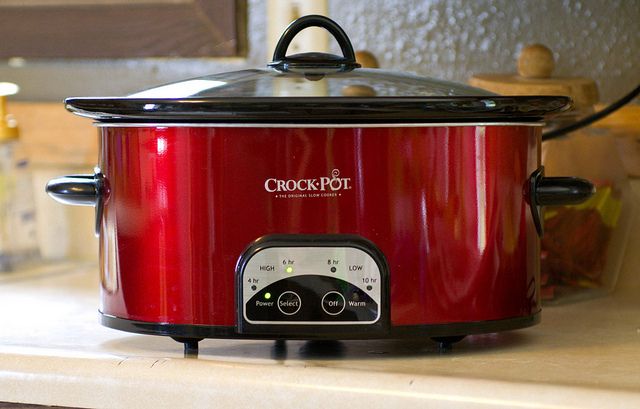Pressure Cooker vs Slow Cooker
Pressure Cooker and Slow Cooker are two distinct types of cookers that differ in the way they function. Both are effective in cooking food and meat in various styles. The slow cooker is also referred to as a Crock Pot in the US. The primary difference between a pressure cooker and a slow cooker is the time they take to cook a meal. The pressure cooker is much faster, whereas the slow cooker, as the name suggests, cooks very slowly. Based on these two differences, several other distinctions exist between a pressure cooker and a slow cooker.
What is Pressure Cooker?
The pressure cooker cooks food and meat very quickly, taking only a few minutes. It operates by cooking food through the steam pressure created from the liquid inside the cooker. The high temperature generated within the appliance allows food and meat to cook very rapidly. Browning meat is possible with a pressure cooker due to the extreme heat. Pressure cookers are available for gas, ceramic, induction, and electric cooking. However, electric pressure cookers must be monitored carefully to prevent overcooking.
What is Slow Cooker?
In contrast, the slow cooker takes hours to cook food and meat due to the low, steady heat it uses. The temperature generated within a slow cooker is not very high, resulting in a slower cooking process compared to a pressure cooker. To get the maximum flavor from food items, slow cooker users must employ other cooking methods as well. The slow cooker’s advantage is that it cooks food and meat slowly, allowing you to prepare the cooking, set the slow cooker, and leave it to cook while you are away. There is no risk of overcooking with a slow cooker due to the low temperature generated.
Key Takeaways
- Pressure cookers use high steam pressure and heat to cook food quickly, while slow cookers use low, steady heat to cook food over an extended period.
- Pressure cookers can brown meat, but slow cookers require additional cooking methods to achieve the same effect.
- Slow cookers are more suitable for new cooks and require minimal supervision, while pressure cookers are better suited for experienced cooks and must be monitored carefully to prevent overcooking.
